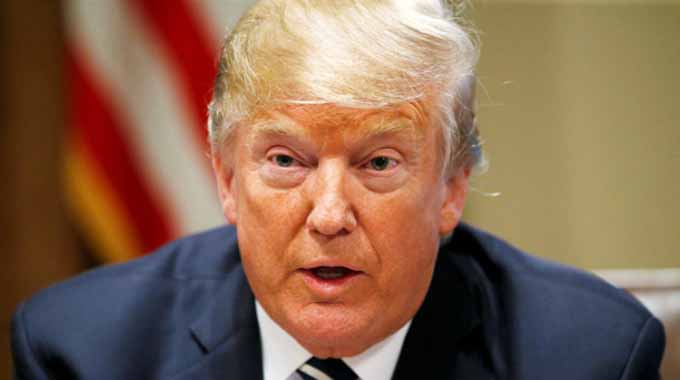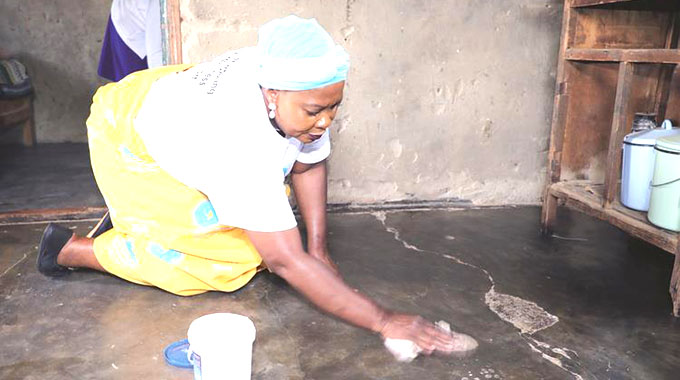World reacts after Iran fires missiles at US targets

TEHRAN. – United States President Donald Trump addressed the nation yesterday morning from the White House de-escalating a crisis with Iran following its missile strikes overnight on two bases in Iraq where US troops are stationed.
Trump announced that the US would be imposing powerful economic sanctions against Iran, but refrained from any immediate threats of military action against the Iranian regime even though he had said he would strike back if Iran attacked the US.
“These powerful sanctions will remain until Iran changes its behaviour,” Trump said.
Iran fired more than a dozen missiles at two Iraqi military bases hosting US troops.
As tension increases, governments around the world are calling for a return to diplomacy and considering plans to withdraw their citizens.
Turkish President Recep Tayyip Erdogan has warned against escalating tension between its neighbour Iran and NATO ally the US, adding that Ankara “uses every means available” to avoid a new conflict.
“At this critical period of war drums being played, we are trying to ease tensions, using all diplomacy channels,” Erdogan said.
“Nobody has the right to throw the whole region, particularly Iraq, into a new ring of fire”.
Turkey does not want the region to be “a stage for proxy wars,” he added.
Turkish Foreign Minister Mevlut Cavusoglu will travel to Iraq today.
The United Nations mission in Iraq said Iran’s attacks escalate tensions and called for “urgent” restraint.
“Recent missile attacks in Erbil and Anbar governorates only escalate conflict, and again violate Iraqi sovereignty,” the UN Assistance Mission for Iraq (UNAMI) said in an online statement.
“Senseless violence has predictable effects. We call for urgent restraint and a resumption of dialogue”.
NATO chief Jens Stoltenberg in a tweet yesterday condemned the missile attacks on Iraqi bases housing US troops and urged Iran to “refrain from further violence”.
A NATO official said there were no casualties among the troops on its training mission in Iraq.
The alliance nevertheless announced on Tuesday that it was moving some of its trainers out of Iraq.
“We are taking all precautions necessary to protect our people. This includes the temporary repositioning of some personnel to different locations both inside and outside of Iraq,” a NATO official told Reuters News Agency.
The NATO Iraq mission, made up of several hundred trainers, advisers and support staff from both countries of the 29-member alliance and non-NATO partner countries, includes military and civilian personnel.
The French foreign ministry expressed its condemnation of the Iranian strikes targeting military bases that house US troops in Iraq.
“France would like to highlight again the importance of continuing the fight against the Islamic State , while respecting the sovereignty of Iraq,” said a statement from the ministry.
Leaders of the semi-autonomous Kurdish region of northern Iraq said US-led military support in fighting the ISIL (ISIS) group was vital and urged its member states not to allow the group’s revival.
“In regards to the recent events, and in particular this morning’s, the Kurdistan Region reiterates that military solution will in no way solve the problems,” the regional president, prime minister and parliamentary speaker said in a statement.
“The Kurdistan Region supports de-escalation of the situation and seeks dialogue and diplomatic solution to the problems. It also seeks stability and peace and urges all parties to refrain from dragging the Kurdistan Region into the rivalries.”
Norwegian Prime Minister Erna Solberg labelled the Iranian missile attacks “an escalation”.
“This is an escalation and a retaliation. Our main message is that it is important to find means to de-escalate this conflict. We are not served if this erupts into war,” Solberg told the Norwegian news agency NTB.
Solberg said Oslo was in touch with other countries in the international coalition against ISIL.
Norwegian Defence Minister Frank Bakke-Jensen is “deeply concerned over the dramatic escalation we have seen in recent days”.
“I would urge all sides to calm the situation down and prevent it from escalating out of control,” he added in a statement.
Israeli Prime Minister Benjamin Netanyahu warned that his country would strike back hard against anyone who attacked it, reiterating his support for the Trump administration following the killing of Soleimani.
“Whoever tries to attack us will be dealt the strongest blow,” Netanyahu said in Jerusalem.
He said Israel “stands completely” beside Donald Trump’s decision, saying the US president should be congratulated for acting “swiftly, boldly and resolutely”.
Spain’s acting Deputy Prime Minister Carmen Calvo said the government has pulled out some of its troops from Iraq due to security concerns.
“Those who were in riskier positions have left for Kuwait,” Calvo told state broadcaster RTVE.
“There is only a reduced number left there.”
The decision comes as NATO announced it would move some of its military training personnel out of Iraq amid fears of a regional conflagration.
The European Commission called for an immediate end to the use of weapons in the Middle East conflict amid escalating tensions between Washington and Tehran, urging efforts to restart dialogue.
European Commission President Ursula von der Leyen told a news briefing before departing to London that she would discuss the situation with British Prime Minister Boris Johnson.
“The use of weapons must stop now to give space for dialogue,” she told reporters after a meeting of her commissioners.
“We are called upon to do everything possible to rekindle talks. There cannot be enough of that. We have established and time-tested relations with many actors in the region and beyond to de-escalate the situation,” she said.
German Defence Minister Annegret Kramp-Karrenbauer said her country “rejects this aggression in the sharpest possible terms”.
She told German public broadcaster ARD that “it’s now particularly up to the Iranians not to engage in further escalation”.
None of the German troops stationed in Iraq were injured.
The United Arab Emirates Minister of State for Foreign Affairs Anwar Gargash said it is essential for the region to pull back from current “troubling” tensions.
“De-escalation is both wise and necessary. A political path towards stability must follow,” Gargash said on Twitter.
Iraq’s military said there were no Iraqi casualties among its forces in yesterday’s 22-missile attack on the two military installations.
“Iraq was subjected between 1:45 and 2:45 this morning of 8 January 2020 to bombardment by 22 missiles; 17 missiles fell on Ain al-Asad air base including two that did not explode . . . and five on the city of Erbil that all fell on coalition headquarters. No casualties among Iraqi forces were recorded,” the statement said.
Japan urged governments to do their utmost to help ease tensions following the missile strikes.
Prime Minister Shinzo Abe is expected to call off a visit this weekend to Saudi Arabia, the UAE and Oman.
Japanese Chief Cabinet spokesman Yoshihide Suga said yesterday that his “government will coordinate with the related governments to collect intelligence while we ensure the safety of Japanese citizens in the region”.
“Japan will also urge all related nations to do their utmost diplomatic effort to improve the relations,” he added.
Japan is sending a warship to the Gulf to help safeguard Japanese vessels and oil tankers travelling through the area.
Pakistan’s Prime Minister Imran Khan said he had asked his foreign minister to visit Iran, Saudi Arabia and the US to convey the message that Pakistan “is ready to play it’s role for peace but it can never again be part of any war”.
Pakistan also issued a statement advising citizens planning to visit Iraq to exercise “maximum caution”.
“In view of recent developments and the prevailing security situation in the region, Pakistani nationals are advised to exercise maximum caution while planning visit to Iraq at this point,” the statement read.
“Those already in Iraq are advised to remain in close contact with the Embassy of Pakistan in Baghdad.”
India has advised its nationals to avoid all non-essential travel to Iraq until further notice.
Those already in the country have been told to be alert and avoid travelling around the country. — Al Jazeera-ABC News.









Comments